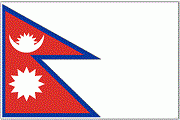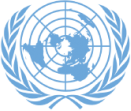Distinguished Co-Chairs,
I wish to begin by thanking you for convening this debate on all the more important area of strengthening of the Office of the President of the United Nations General Assembly (OPGA) as part of the wider effort to revitalize the work of the General Assembly. We commend the excellent manner in which you are guiding the Ad Hoc Working Group.
My delegation subscribes to the statement delivered on behalf of the Non-Aligned Movement (NAM) and also wishes to contribute some additional perceptions relevant to the debate here.
Co-Chairs,
In our view, strengthening of the OPGA involves aspects like what it does, how it does and how it keeps the spirit of the continuous presidency.
Ideally, what it does over and above the regular business of the Assembly should add value, be in the Member States’ collective interest, raise the visibility and profile of the Presidency, and not duplicate the work of the Secretariat. The work of the PGA and OPGA should relate to the most pressing issues of significance and relevance to the widest possible membership of the United Nations, with a focus on the neediest.
‘How it does’ should: ensure transparency, establish accountability and be in close cooperation with the UN Secretariat, raise the dignity of the high office and not undermine the profile of the presidency. Likewise, the sense of continuity of presidency relates to how the presidency is transferred from the outgoing president to the incoming president, how the transition and sustainability of initiatives is managed and how the archive is maintained.
My delegation commends all delegations for their efforts to establish the practice of oath of office and the Code of Ethics for the first time in the Office of the PGA last year so as to strengthen the transparency and accountability of this high office. My delegation is happy to note that its proposal on the modality of taking the oath of office was adopted by consensus.
We believe that both the Oath of Office and the Code of Ethics have enabled the PGA to carry out his or her duties and responsibilities from a higher plane of moral authority, integrity and credibility. Since the Code of Ethics applies to all the staff in the OPGA, it also helps enhance the transparency and accountability of the Office of the PGA as a whole.
Nepal supports all efforts directed at an effective and genuine strengthening of the institutional memory of the Office of the PGA and reiterates that there should be an increase in the regular budget allocated for the use of the OPGA, including for this purpose.
Nepal admires the practice of the outgoing PGAs briefing their successors on the lessons learned and best practices, and allowing incoming senior staff to be associated in the work of the office soon after the election of the new PGA. In this connection, having been privileged to be in the last three successive General Committees, I cannot but acknowledge the important contribution that is being made by Finland, among others, for several years now, to facilitate interaction between the incoming and outgoing General Committee members, with the participation of the outgoing and incoming PGAs as well as the Secretary-General.
More recently, the PGA’s activities have increased significantly with substantive involvement to push for the implementation of the 2030 Agenda for Sustainable Development. It is a welcome step that the current PGA and his team have worked tirelessly to explore synergies of the General Assembly for effective implementation of this transformative and comprehensive development agenda. This is a departure from most of the past practices of adopting compacts and forgetting about their implementation until mid-term or other review time. The essence lies in the implementation and my delegation is more than supportive of the initiatives of the PGA to create, heighten and sustain the much needed awareness and momentum for implementation.
We must also acknowledge, however, that there are observations that the engagement of the General Assembly should first and foremost be centered on enhancing the convening power of the General Assembly, making impacts on the pressing issues of the world, as envisaged in the UN Charter. The Charter has given a role of high honour and onus to the PGA, including that of presiding over the General Assembly. As the high authority elected by the Member States, the PGA should protect their collective interest in different important relevant forums.
It could be in this light that there are genuine concerns about the high number of high levels convened by the PGA. When little or no high level attendance is noticed in some of these ‘high level’ meetings or events, it contributes to the erosion of the convening power of the PGA, and by implication of the General Assembly. Enclosing the list of participants who actually participated in each event together with the summary of these events the OPGA circulates would enhance the transparency in this regard.
While we reemphasize the strengthening of the Office of the PGA, we must be careful that disproportionate and momentary surge in the size of the OPGA staff/ team with competing roles and ad-hoc resources may not be in the best interest of both the Office of the PGA as well as for the UN Secretariat, let alone Member States, especially if they end up competing with the UN Secretariat in any manner. We are not saying this to mean that this is happening now but rather as a word of caution we all need to heed as we tread ahead.
Co-Chairs,
My delegation understands the importance of the presence of PGA in person in numerous international conferences and events throughout the year at the invitation of the Member States. While PGA must be where he or she should be among the many events, it would be useful to see that the OPGA also embraces the Vice Presidents as part and parcel. The Charter has provided this great potential for burden sharing which should be appreciated and made use of. On the other hand, such presence should always add value while ruling out even any remote possibility of unwittingly undermining the dignity of the position of the PGA or run into controversy, both of which would undermine the convening power of the institution.
I find it worth mentioning here that the convening power of GA or PGA does not only mean their ability to make invitations to States to come together but also to be successful in getting all or most of those invited to come together as requested by them as convener.
This said, we the Member States need also to be mindful about the likely implication on the sustainability aspects of initiatives of long-term nature taken by the PGA who rotate every year among regions and countries. Widowing and orphaning of activities may sometimes make it worse than not having the initiative at all.
Co-Chairs,
To conclude, Nepal is of the view that the Office of the PGA should be strengthened in such a manner that both human and financial resources are sufficient for the activities that are mandated by the UN Charter and relevant GA resolutions, to help generate the much needed political will and momentum on issues of our common interests, by neither duplicating what the Secretariat is supposed to do nor working in silos, and in maintaining a quality, complete, and easily retrievable institutional archive of its own.
The Member States may discuss whether appropriate criteria could be developed in these many aspects as well.
I wish to close by reaffirming Nepal’s continuing commitment to contribute constructively and effectively to the work of the Ad-Hoc Working Group on the revitalization of the work of the General Assembly which you are so dedicatedly carrying forward.
I thank you for your attention.


